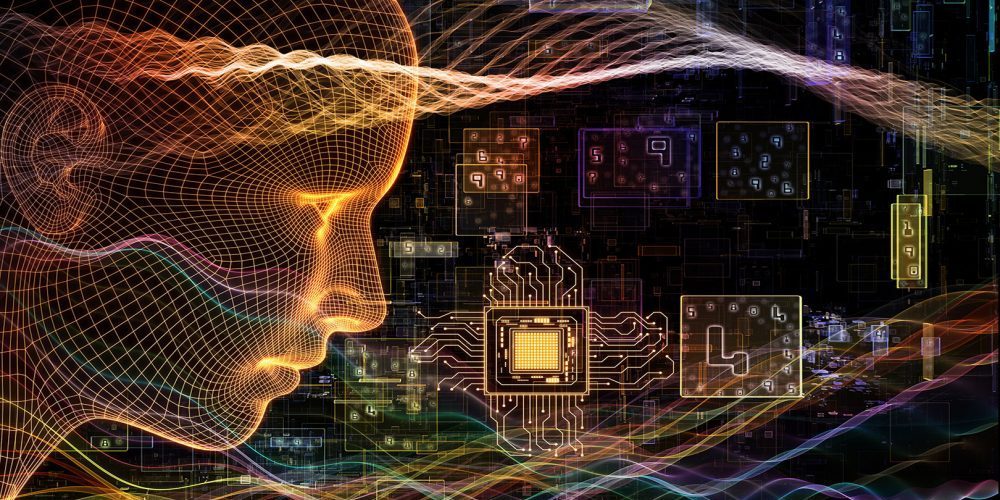
Quantum Computing is the study of a non-classical model of computation. Whereas traditional models of computing such as the Turing machine or Lambda calculus rely on “classical” representations of computational memory, a quantum computation could transform the memory into a quantum superposition of possible classical states.
A quantum computer is a device that could perform such complex computation.
UNDERSTANDING QUANTUM COMPUTING?
Quantum and classical computers both try to solve problems, but the way they manipulate data to get answers is fundamentally different. What makes quantum computers unique is the introduction of two principles of quantum mechanics crucial for its operation – superposition and entanglement.
Superposition is the counterintuitive ability of a quantum object, like an electron, to simultaneously exist in multiple “states.” With an electron, one of these states may be the lowest energy level in an atom while another may be the first excited level. If an electron is prepared in a superposition of these two states it has some probability of being in the lower state and some probability of being in the upper. A measurement will destroy this superposition, and only then can it be said that it is in the lower or upper state.
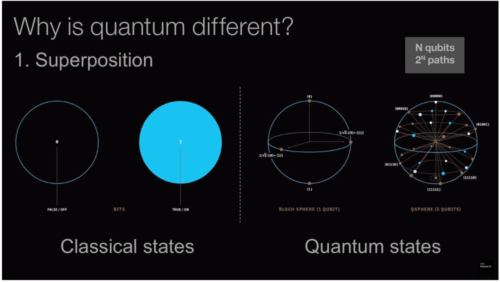 Understanding superposition makes it possible to understand the basic component of information in quantum computing, the qubit. In classical computing, bits are transistors that can be off or on, corresponding to the states 0 and 1. In qubits such as electrons, 0 and 1 simply correspond to states like the lower and upper energy levels discussed above. Qubits are distinguished from classical bits, which must always be in the 0 or 1 state, by their ability to be in superpositions with varying probabilities that can be manipulated by quantum operations during computations.
Understanding superposition makes it possible to understand the basic component of information in quantum computing, the qubit. In classical computing, bits are transistors that can be off or on, corresponding to the states 0 and 1. In qubits such as electrons, 0 and 1 simply correspond to states like the lower and upper energy levels discussed above. Qubits are distinguished from classical bits, which must always be in the 0 or 1 state, by their ability to be in superpositions with varying probabilities that can be manipulated by quantum operations during computations.
Entanglement is a phenomenon in which quantum entities are created and/or manipulated such that none of them can be described without referencing the others. Individual identities are lost. This concept is exceedingly difficult to conceptualize when one considers how entanglement can persist over long distances. A measurement on one member of an entangled pair will immediately determine measurements on its partner, making it appear as if information can travel faster than the speed of light. This apparent action at a distance was so disturbing that even Einstein dubbed it “spooky”.
Quantum computers obtain their speedup by trying every possible answer to a problem in parallel. In reality a quantum computer leverages entanglement between qubits and the probabilities associated with superpositions to carry out a series of operations (a quantum algorithm) such that certain probabilities are enhanced (i.e., those of the right answers) and others depressed, even to zero (i.e., those of the wrong answers). When a measurement is made at the end of a computation, the probability of measuring the correct answer should be maximized. The way quantum computers leverage probabilities and entanglement is what makes them so different from classical computers.
WHY DO WE WANT IT?
The promise of developing a quantum computer sophisticated enough to execute Shor’s algorithm for large numbers has been a primary motivator for advancing the field of quantum computation. To develop a broader view of quantum computers, however, it is important to understand that they will likely deliver tremendous speed-ups for only specific types of problems. Researchers are working to both understand which problems are suited for quantum speed-ups and develop algorithms to demonstrate them. In general, it is believed that quantum computers will help immensely with problems related to optimization, which play key roles in everything from defense to financial trading.
Multiple additional applications for qubit systems that are not related to computing or simulation also exist and are active areas of research, but they are beyond the scope of this overview. Two of the most prominent areas are (1) quantum sensing and metrology, which leverage the extreme sensitivity of qubits to the environment to realize sensing beyond the classical shot noise limit, and (2) quantum networks and communications, which may lead to revolutionary ways to share information.
Understanding Qubit
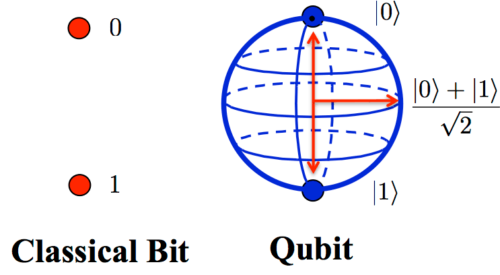 A quantum bit, or qubit, is the basic unit of information for a quantum computer, analogous to a bit in ordinary machines. But unlike a bit, which can have the value 0 or 1, a qubit can take on an infinite number of values. Physicists call these the states of the qubit.
A quantum bit, or qubit, is the basic unit of information for a quantum computer, analogous to a bit in ordinary machines. But unlike a bit, which can have the value 0 or 1, a qubit can take on an infinite number of values. Physicists call these the states of the qubit.
It turns out that specifying a qubit’s state is a lot like specifying your position on Earth using latitude and longitude. The yellow arrow in the figure below points to a spot at a particular latitude and longitude. Notice how the arrow moves when you change the sliders.
Just as two numbers can pinpoint a spot on a globe, there are two numbers that determine a qubit state. In general, that state will be a combination of two special quantum states, which are called 0 and 1 to match the naming convention for ordinary bits. These special states are like the north and south pole on a globe.
Although there are an infinite number of possible qubit values, observing a qubit’s state—by making a quantum measurement—yields either 0 or 1. The result of a given measurement is probabilistic and depends on the details of this combination. In particular, the chance of observing the qubit in one of the special states depends on its distance from either pole. (The opacity of the colored discs on the right side of the animation below represents this chance, with more opaque colors indicating a higher probability for 0 or 1.) Qubits with values on the equator of the sphere are equally likely to be 0 or 1 when measured, but they are all subtly different. As the arrow traces traces a path along the equator, different colors represent phase differences—numbers responsible for interference effects when two qubits interact.
Different physical systems can store a qubit, such as the polarization of a photon, the spin of an electron or the amount of magnetic field that passes through the middle of a loop of superconductor. Researchers at JQI freqently use atoms to store qubits. Creating a real qubit in a lab requires detailed knowledge of these platforms, but the abstraction of a qubit allows scientists to treat them on equal an equal footing when studying their properties.
Finally, just as bits undergo digital logic gates like AND, OR and NOT, qubits, too, have gates. Visually, these are rotations of a qubit’s state to a new position on the surface of the sphere. Quantum computations consist of preparing many qubits in a certain state, rotating them and making measurements.
BUILDING A QUANTUM COMPUTER?
Building quantum computers is incredibly difficult. Many candidate qubit systems exist on the scale of single atoms, and the physicists, engineers, and materials scientists who are trying to execute quantum operations on these systems constantly deal with two competing requirements. First, qubits need to be protected from the environment because it can destroy the delicate quantum states needed for computation. The longer a qubit survives in its desired state the longer its “coherence time.” From this perspective, isolation is prized. Second, however, for algorithm execution qubits need to be entangled, shuffled around physical architectures, and controllable on demand. The better these operations can be carried out the higher their “fidelity.” Balancing the required isolation and interaction is difficult, but after decades of research a few systems are emerging as top candidates for large-scale quantum information processing.
Superconducting systems, trapped atomic ions, and semiconductors are some of the leading platforms for building a quantum computer. Each has advantages and disadvantages related to coherence, fidelity, and ultimate scalability to large systems. It is clear, however, that all of these platforms will need some type of error correction protocols to be robust enough to carry out meaningful calculations, and how to design and implement these protocols is itself a large area of research. For an overview of quantum computing, with more detail regarding experimental implementations.
In this article, “quantum computing” has so far been used as a blanket term describing all computations that utilize quantum phenomena. There are actually multiple types of operational frameworks. Logical, gate-based quantum computing is probably the best recognized. In it, qubits are prepared in initial states and then subject to a series of “gate operations,” like current or laser pulses depending on qubit type. Through these gates the qubits are put in superpositions, entangled, and subjected to logic operations like the AND, OR, and NOT gates of traditional computation. The qubits are then measured and a result obtained.
Another framework is measurement-based computation, in which highly entangled qubits serve as the starting point. Then, instead of performing manipulation operations on qubits, single qubit measurements are performed, leaving the targeted single qubit in a definitive state. Based on the result, further measurements are carried out on other qubits and eventually an answer is reached.
A third framework is topological computation, in which qubits and operations are based on quasiparticles and their braiding operations. While nascent implementations of the components of topological quantum computers have yet to be demonstrated, the approach is attractive because these systems are theoretically protected against noise, which destroys the coherence of other qubits.
Finally, there are the analog quantum computers or quantum simulators envisioned by Feynman. Quantum simulators can be thought of as special purpose quantum computers that can be programmed to model quantum systems. With this ability they can target questions such as how high-temperature superconductors work, or how certain chemicals react, or how to design materials with certain properties.
Key Components of a Quantum Computer
In order to work with qubits for extended periods of time, they must be kept very cold. Any heat in the system can introduce error, which is why quantum computers are designed to create and operate at temperatures near absolute zero.
Here’s a look at how a quantum computer’s dilution refrigerator, made from more than 2,000 components, exploits the mixing properties of two helium isotopes to create such an environment for the qubits inside.

1. Qubit Signal Amplifier
One of two amplifying stages is cooled to a temperature of 4 Kelvin.
2. Input Microwave Lines
Attenuation is applied at each stage in the refrigerator in order to protect qubits from thermal noise during the process of sending control and readout signals to the processor.
3. Superconducting Coaxial Lines
In order to minimize energy loss, the coaxial lines that direct signals between the first and second amplifying stages are made out of superconductors.
4 Cryogenic Isolators
Cryogenic isolators enable qubits signals to go forward while preventing noise from compromising qubit quality.
5 Quantum Amplifiers
Quantum amplifiers inside of a magnetic shield capture and amplify processor readout signals while minimizing noise.
6 Cryoperm Shield
The quantum processor sits inside a shield that protects it from electromagnetic radiation in order to preserve its quality.
7 Mixing Chamber
The mixing chamber at the lowest part of the refrigerator provides the necessary cooling power to bring the processor and associated components down to a temperature of 15 mK — colder than outer space.
Future Trends in Quantum Computing
Quantum Computers are not destined to replace the processors in personal computers or smartphones anytime soon.Total enterprise Quantum Computing market revenue is expected to reach $9.1 billion annually by 2030, up from $111.6 million in 2018.
For the most part, quantum computers will be best suited to addressing optimization problems, identifying patterns in data, and conducting complex simulations that would be too taxing for traditional, or classical, computers. These issues will drive the global market for enterprise QC. But quantum computers have not yet demonstrated quantum supremacy or quantum advantage. Significantly scaling the processing power, improving error correction abilities, and writing and refining quantum algorithms will be required before enterprises adopt QC en masse. Still, the QC market is expected to grow strongly through 2030.
Real world applications of quantum computers will have a visible impact on the world and how companies and people engage with it.
Logistical and optimization problems:
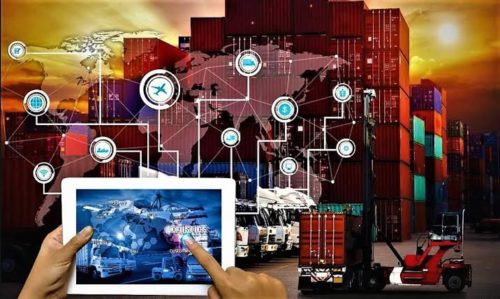 Among the most immediate and profitable uses for quantum computers will be optimization. For ride-sharing apps, like Uber, what's the fastest route to pick up and drop off as many customers as possible? For e-commerce giants, like Amazon, what's the most cost-effective way to deliver billions of packages during the holiday gift buying rush?
Among the most immediate and profitable uses for quantum computers will be optimization. For ride-sharing apps, like Uber, what's the fastest route to pick up and drop off as many customers as possible? For e-commerce giants, like Amazon, what's the most cost-effective way to deliver billions of packages during the holiday gift buying rush?
These simple questions involve number crunching hundreds to thousands of variables at once, a feat that modern supercomputers just can't handle; so instead, they compute a small percentage of those variables to help these companies manage their logistical needs in a less than optimal way. But with a quantum computer, it will slice through a mountain of variables without breaking a sweat.
Weather and Climate Modeling:
Similar to the point above, the reason why the weather channel sometimes gets it wrong is because there are too many environmental variables for their supercomputers to process (that and sometimes poor weather data collection). But with a quantum computer, weather scientists can not only forecast near-term weather patterns perfectly, but they can also create more accurate long-term climate assessments to predict the effects of climate change.
Personalized Medicine:
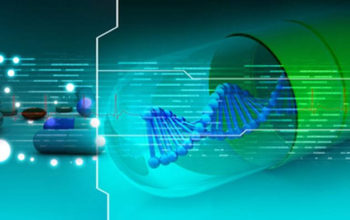 Decoding your DNA and your unique microbiome is crucial for future doctors to prescribe drugs that are perfectly tailored to your body. While traditional supercomputers have made strides in decoding DNA cost-effectively, the microbiome is far beyond their reach—but not so for future quantum computers.
Decoding your DNA and your unique microbiome is crucial for future doctors to prescribe drugs that are perfectly tailored to your body. While traditional supercomputers have made strides in decoding DNA cost-effectively, the microbiome is far beyond their reach—but not so for future quantum computers.
Quantum computers will also allow Big Pharma to better predict how different molecules react with their drugs, thereby significantly speeding up pharmaceutical development and lowering prices.
Space exploration:
The space telescopes of today (and tomorrow) collect enormous amounts of astrological imagery data each day that tracks the movements of trillions of galaxies, stars, planets, and asteroids. Sadly, this is far too much data for today's supercomputers to sift through to make meaningful discoveries on a regular basis. But with a mature quantum computer combined with machine-learning, all this data can finally be processed efficiently, opening the door to the discovery of hundreds to thousands of new planets daily by the early-2030s.
Fundamental Sciences:
Similar to the points above, the raw computing power these quantum computers enable will allow scientists and engineers to devise new chemicals and materials, as well as better functioning engines and of course, cooler Christmas toys.
Machine Learning:
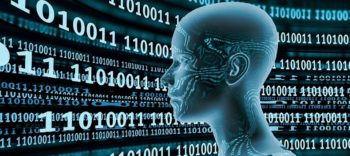 Using traditional computers, machine-learning algorithms need a giant amount of curated and labeled examples (big data) to learn new skills. With quantum computing, machine-learning software can begin to learn more like humans, whereby they can pick up new skills using less data, messier data, often with few instructions.
Using traditional computers, machine-learning algorithms need a giant amount of curated and labeled examples (big data) to learn new skills. With quantum computing, machine-learning software can begin to learn more like humans, whereby they can pick up new skills using less data, messier data, often with few instructions.
This application is also a topic of excitement among researchers in the artificial intelligence (AI) field, as this improved natural learning capacity could accelerate progress in AI research by decades. More on this in our Future of Artificial Intelligence series.
Data Encryption:
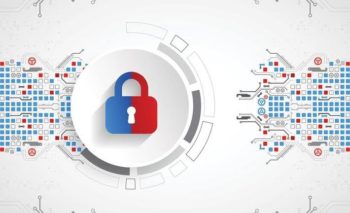 Sadly, this is the application that has most researchers and intelligence agencies nervous. All current encryption services depend on creating passwords that would take a modern supercomputer thousands of years to crack; quantum computers could theoretically rip through these encryption keys in under an hour.
Sadly, this is the application that has most researchers and intelligence agencies nervous. All current encryption services depend on creating passwords that would take a modern supercomputer thousands of years to crack; quantum computers could theoretically rip through these encryption keys in under an hour.
Banking, communication, national security services, the internet itself depends on reliable encryption to function. (Oh, and forget about the bitcoin as well, given its core dependence on encryption.) If these quantum computers work as advertised, all of these industries will be at risk, at worst endangering the entire world economy until we build quantum encryption to keep pace.
Real-Time Language Translation:
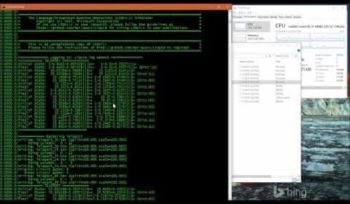 To end this chapter and this series on a less stressful note, quantum computers will also enable near-perfect, real-time language translation between any two languages, either over a Skype chat or through the use of an audio wearable or implant in your ear.
To end this chapter and this series on a less stressful note, quantum computers will also enable near-perfect, real-time language translation between any two languages, either over a Skype chat or through the use of an audio wearable or implant in your ear.
In 20 years, language will no longer be a barrier to business and everyday interactions. For example, a person who only speaks English can more confidently enter into business relationships with partners in foreign countries where English brands would have otherwise failed to penetrate, and when visiting said foreign countries, this person may even fall in love with a certain somebody who only happens to speak Cantonese.
Sources / References: https://www.ibm.com/quantum-computing/learn/what-is-quantum-computing https://en.wikipedia.org/wiki/Quantum_computing






 Weather and Climate Modeling:
Weather and Climate Modeling: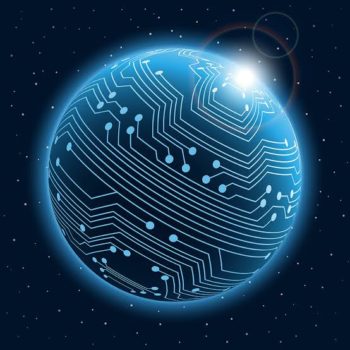






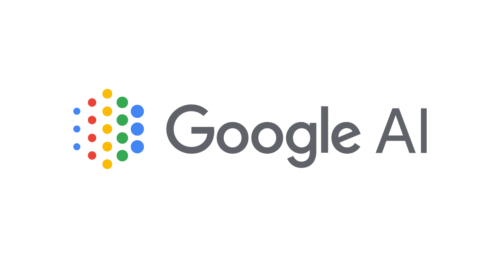

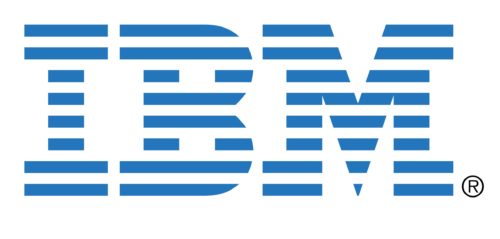
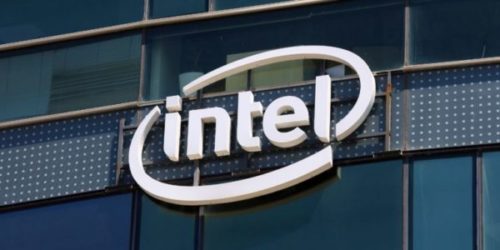

Leave a Reply